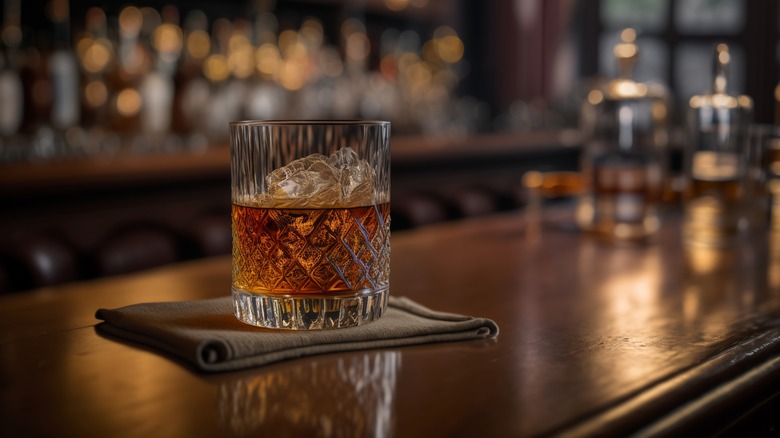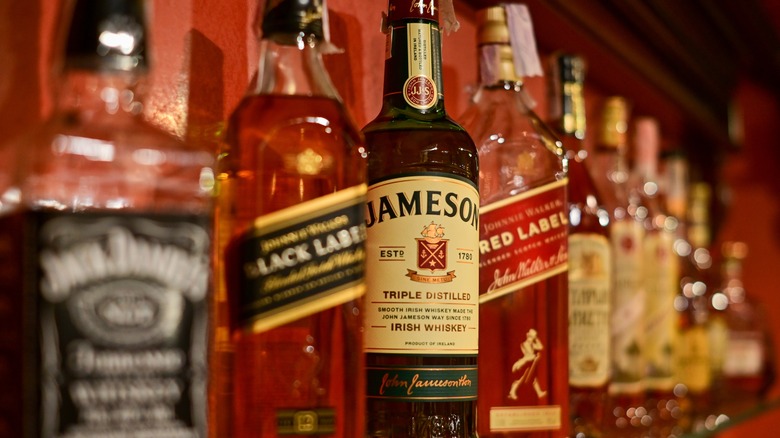Why Irish Whiskey Is The Best For Beginners, According To An Expert
If you're new to or intimidated by whiskey, we don't blame you. The drink has garnered a reputation for its acquired taste; if you're not used to whiskey, it may come off strong, potent, and, especially for spirit novices, with a significant burning sensation. While those qualities may deter anyone who prefers their spirits on the sweeter side, not all hope is lost for budding whiskey enthusiasts. Rather, if you're looking to transition into the realm of whiskey, head across the pond — at least in your glass.
"Irish whiskey is very typically very mellow and very easy to drink — and it's not overpowering in flavor," Mark McLaughlin, co-founder of whiskey brand Old Line Spirits, tells Tasting Table. "So, I think Irish whiskey, for a person who is just starting to dabble, is a great place to start."
This category of whiskey refers to whiskey that is triple-distilled from malted barley. You may recognize it most readily in the form of Jameson: a popular brand made, of course, in Ireland, but sold in the United States. However, a slew of other brands do the job and can similarly be purchased in America. To experiment with Irish whiskey, grab a bottle of your preferred brand. Then, pour yourself a glass — but make sure to start with just a small sip. The reason this iteration of whiskey works so well is not only because of its flavor but also because of its proof.
Experiment with Irish whiskey to limit the burn
If you're hesitant toward whiskey at large, trust in McLaughlin's advice. "The more you drink whiskey, the less that you can notice or feel that burn," he explains to Tasting Table. "And, as that burn fades away, you really start to experience the good part, which is all the flavor."
Irish whiskeys, in particular, make taking this advice easy, as it allows drinkers to overcome the spirit's burn more quickly. Unlike other types of whiskeys, Irish whiskeys come low in proof — at least relative to their 100-proof "bottled in bond" counterparts. For reference, Irish whiskeys fall around 80 proof, said McLaughlin. This is about the lowest a whiskey can go while still being deemed a whiskey. As such, there's no better starting point for working your way into the drink.
Once you've developed your palate with Irish whiskey, McLaughlin suggests gradually trying stronger variations. From there, you can sip on bourbons, ryes, and single malt scotches. The world — or, at least, the whiskey world — is your oyster.

